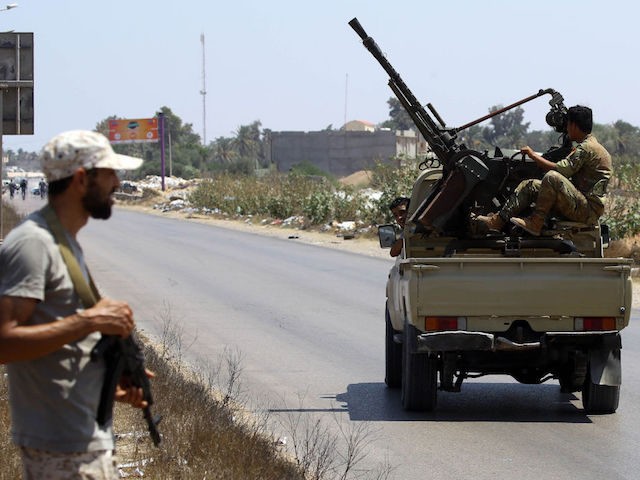The World Health Organization (WHO) classified Libya as a “high-risk” country for coronavirus infection on Sunday, while diplomats went even further and warned of a “fatal” outbreak if fighting continues between the internationally-recognized Government of National Accord (GNA) and the Libyan National Army (LNA) under Gen. Khalifa Haftar.
“A halt in hostilities is an absolute necessity to provide public health authorities across Libya the opportunity to collaborate, in a spirit of national cohesion, to contain and overcome this outbreak,” U.S. Ambassador to Libya Richard Norland wrote in a letter sent to both sides of the conflict over the weekend.
“The health and safety of all people in Libya, including 345,000 of the most vulnerable, is at risk. A possible outbreak will overwhelm the already stretched aid response,” the U.N. Office for the Coordination of Humanitarian Affairs in Libya warned last week.
The International Committee of the Red Cross noted that Libya is unprepared for the Wuhan virus because “too many hospitals and clinics have been damaged in the fighting.” WHO agreed that the system was “close to collapse” even before the coronavirus pandemic.
After logging seven confirmed cases of the coronavirus in Libya over the weekend, WHO “classified Libya among the high-risk countries in the region” and stressed the importance of adopting preventive measures.
Those measures are difficult to practice during a shooting war. The GNA and LNA agreed to a ceasefire on March 22, but each side has accused the other of violating it several times since then. Tripoli was bombed a few days after the ceasefire went into effect and shelled again on Sunday, while intense fighting was reported around a strategic airfield near the capital, and Haftar’s forces claim to have captured several towns in the northwestern part of the country.
Turkey is involved in the conflict on the GNA’s behalf, putting it on a collision course with the European Union, which began enforcing an arms embargo in the Mediterranean last Thursday. The French Navy intercepted a Turkish ship carrying anti-aircraft missiles to Libya on Saturday. However, Turkish President Recep Tayyip Erdogan joined U.S. President Donald Trump on Tuesday in calling for a full ceasefire in Libya as part of a worldwide effort to “defeat the virus and bolster the global economy,” as the White House put it.
Both the GNA and LNA have taken steps against the coronavirus, with the GNA imposing a curfew in western Libya on March 22 and extending it further on Sunday. A new quarantine center in Tripoli was unveiled this week, and the government has posted photos of sterilization vehicles and ambulances fanning out across GNA territory from Tripoli. Over 450 prisoners were released from detention to reduce the risk of coronavirus spreading through prisons.
Critics of the GNA’s leadership accuse it of failing to enact more stringent measures promised in early March and have called for the resignation of Health Ministry officials. There have also been complaints about medical staff stealing protective equipment for themselves and refusing to work with suspected coronavirus patients.

COMMENTS
Please let us know if you're having issues with commenting.